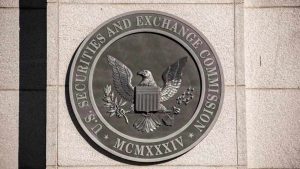Industry experts weigh in on SEC hiring more crypto cops

The United States Securities and Exchange Commission (SEC) is seeking to hire more people to focus on digital assets, raising the number of personnel charged with safeguarding investors in cryptocurrency markets by almost twofold.
The SEC’s Cyber Unit, which comprises the Crypto Assets and Cyber team, is expected to hire 20 new people for 50 dedicated roles as reported by Cointelegraph on May 3. This development comes as the regulatory body attempts to keep up with the rise in the popularity of virtual assets.
The SEC’s decision to expand its cryptocurrency assets unit has been praised by industry experts, with Dr. Anna Becker, CEO and co-founder of EndoTech, calling it “a welcome development.” She believes that enhanced security, regulation and complex financial investment solutions will enable digital currencies to become more accepted.
On the crypto firms collaborating with regulators, she told Cointelegraph that “When we collaborate to set and uphold the rules, we will create a market that serves the public and gives them the opportunity to make money with proper protection.” She added:
“This market is still in its infancy. When it comes to crypto trading, we need the same types of safeguards that have developed in equity and other mainstream markets over the years. These will enable crypto to develop into a more robust asset class with more advanced financial tools.”
Jay Fraser, head of the strategy at BSTX, believes that crypto companies should interact with regulators. He noted that the severity of recent price declines might be partly attributed to a lack of depth and the number of active participants in cryptocurrency markets. According to Fraser, a consistent and predictable regulatory environment would potentially encourage more institutional traders to participate in dampening the price swings.
Andrea Gordon, a compliance expert and counsel at Eversheds Sutherland, stressed the importance of crypto businesses working with regulators. She told Cointelegraph that in an ideal world, firms would be able to have an open dialogue with authorities about particular offerings because the regulatory climate for cryptocurrency is always changing.
According to Gordon, some firms may not want to deal with authorities because the procedure might be costly and time-consuming (resulting in a product launch’s delay) or perhaps result in an enforcement action. She cited Coinbase’s experience with the SEC over its Lend service as a cautionary tale. She said
“In September 2021, Coinbase’s chief legal officer announced in a blog post that, after Coinbase had engaged with the SEC about the product for nearly six months, the SEC threatened to sue if Coinbase launched Lend.”
On how the two sides collaborate to build a mutually beneficial relationship, she said that education is crucial in the cryptocurrency world. The sector should seek methods to educate regulators while also encouraging a regulatory approach that makes sense.
“Regulators often issue proposed rules for public comment. These are great opportunities for the industry to weigh in on and explain the potential effects or (perhaps unanticipated) consequences of regulation.”
Anndy Lian, a thought leader and chief digital advisor to the Mongolian Productivity Organisation, stated that regulatory bodies could regulate the cryptocurrency sector adequately. Lian claims that most regulatory bodies are attempting to apply old rules and laws to the cryptocurrency industry in order to catch up, and it has “resulted in a catching up game where they have to be constantly changing.”
Related: The United States turns its attention to stablecoin regulation
Pratik Gauri, founder and CEO of 5ire, addressed the present situation between crypto businesses and regulators. According to him, “there is still great mistrust on both sides.” He told Cointelegraph that “crypto people have demonized regulators ” as working for the banking lobby or other organized interests, and regulators have characterized all crypto operations as illegal activities. However, he added that recent innovation and the volatility in the crypto space have caused the two parties to reconsider their stance.













